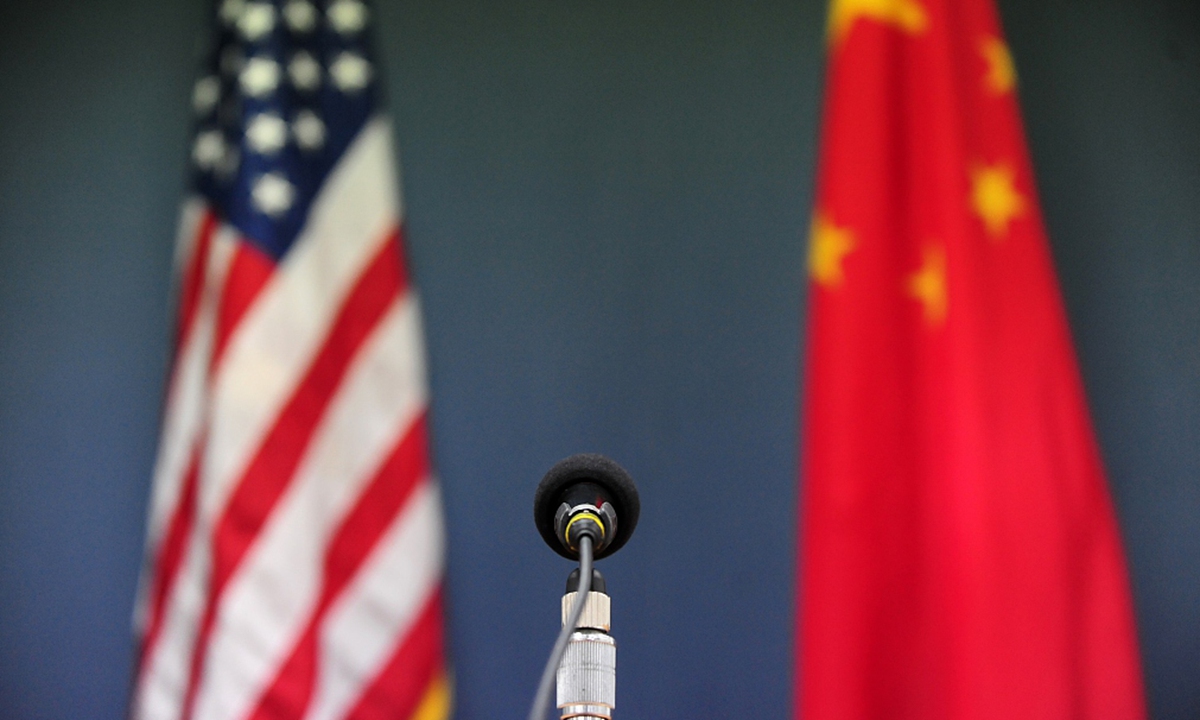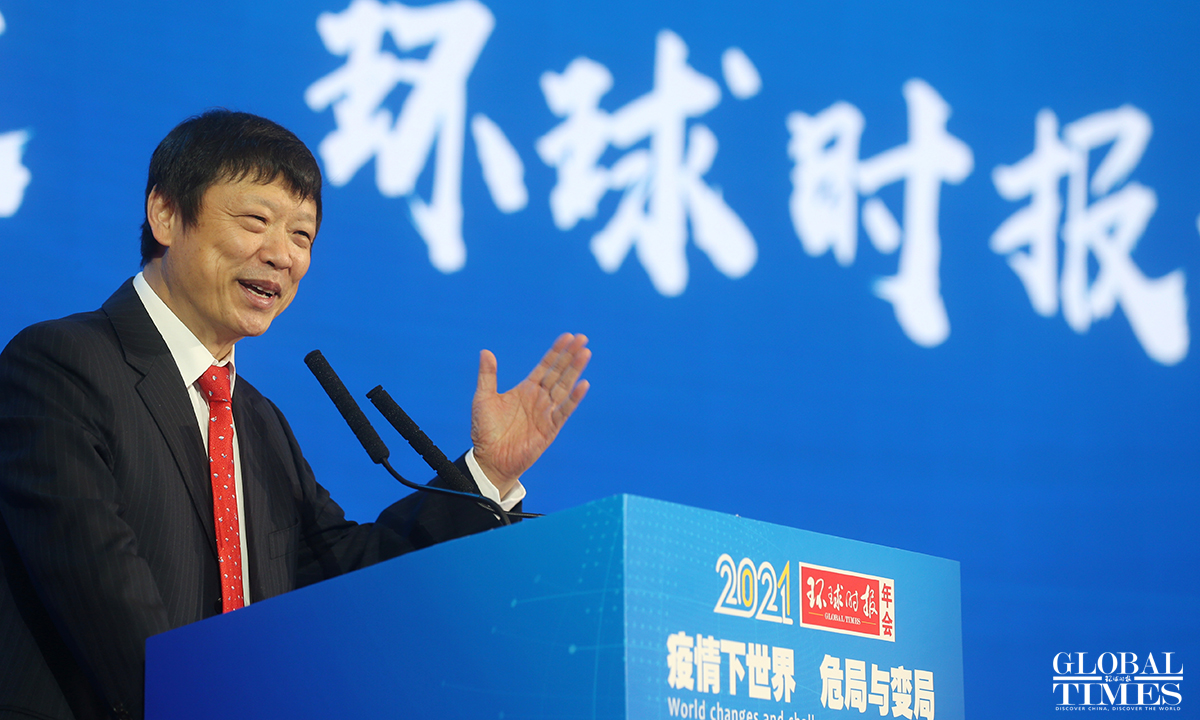
China US Photo:VCG
Former officials, top scholars and a dozen of young scholars from China and the US had in-depth discussions on how to get China-US relations back on track at a forum held in Beijing on April 10.
China-US Young Scholars Forum, co-organized by the Global Times, the Carter Center of the US, and the Institute for Global Cooperation and Understanding with Peking University, was held online to commemorate 5th anniversary of the forum.
The event was also held on the day that marks the 50th anniversary of the "ping-pong diplomacy" between China and the US.
Former US President Jimmy Carter sent a congratulatory letter, saying that the normalization of China-US relations has opened an era of peace and opportunity for both countries.

Hu Xijin, editor-in-chief of the Global Times.
Hu Xijin, Editor-in-Chief of the Global Times, said in his opening speech that it seems the world needs another "ping-pong diplomacy", but he believed the current China-US relationship won't slide to the starting point 50 years ago, no matter how bad it would become.
He said that the vast majority of the Chinese and American people do not like a Cold War. It not only goes against the wish of the people, but is also unable to address current problems.
Liu Yawei, Director of the China Program of the Carter Center, looked back at the history of "ping-pong diplomacy" and what we can learn from it.
Jia Qingguo, Professor of the School of International Studies and Director of the Institute of Global Cooperation and Understanding at Peking University, believed that both the Chinese and American people have benefited a lot from the improvement of relations over the past few decades and have a stake in the future development of China-US relations. The sound management of China-US relations also bears on the future and destiny of the world.
Everyone who cares about the future of our two countries and the world at large should work hard to ensure the stability of China-US relations,Jia said.
On how to get China-US relations back on track, He Yafei, former deputy minister of Foreign Affairs of China, said in his keynote speech that the most urgent thing now is to redefine and understand the ever-developing new relationship between the two countries and design a new way forward.
Both sides should strive to incorporate what they call "strategic competition" into a framework with bottom lines and acceptable rules, He said.
He also made three suggestions: clearly define the competition based on bottom-line thinking; second, the two countries need to have a correct understanding of their cultural and ideological differences; Lastly, measures such as pragmatic dialogue can be taken to make up for the trust deficit.
J. Stapleton Roy, former US ambassador to China, said the US abused its power because it wasn't checked and balanced the way it had been during the Cold War. The rise of China, a more powerful China, is a good thing, as is the transition to a multipolar world.
US newspapers and journals are filled with essays offering advice on what we should be doing. China, unsurprisingly, occupies a central position in the policy recommendations that are being put forward. Most of these recommendations assume the US will inevitably have a hostile relationship with China. This is an inaccurate and dangerous assumption," Roy said.
As a member of the second group of young Americans visiting China after the US table tennis team, Susan L. Shirk, former deputy assistant secretary of US Department of State recalled the good old days and encouraged young foreign policy scholars to pay more attention to domestic factors based on her own experiences.
A dozen of young scholars from China and the US had full exchanges and discussions on how to restart China-US relations from their own experiences, relevant academic research topics and policy suggestions.
Xie Rongbin, deputy editor-in-chief of the Global Times and Wang Dong, executive director of Institute for Global Cooperation and Understanding, Peking University, made the concluding remarks, encouraging young scholars from the two countries to play a more active role in the development of China-US relations in this important historical period.
The first China-US Young Scholars Forum was held in September 2014 in Xi'an, Shaanxi Province, which former US president Carter attended and gave remarks.





